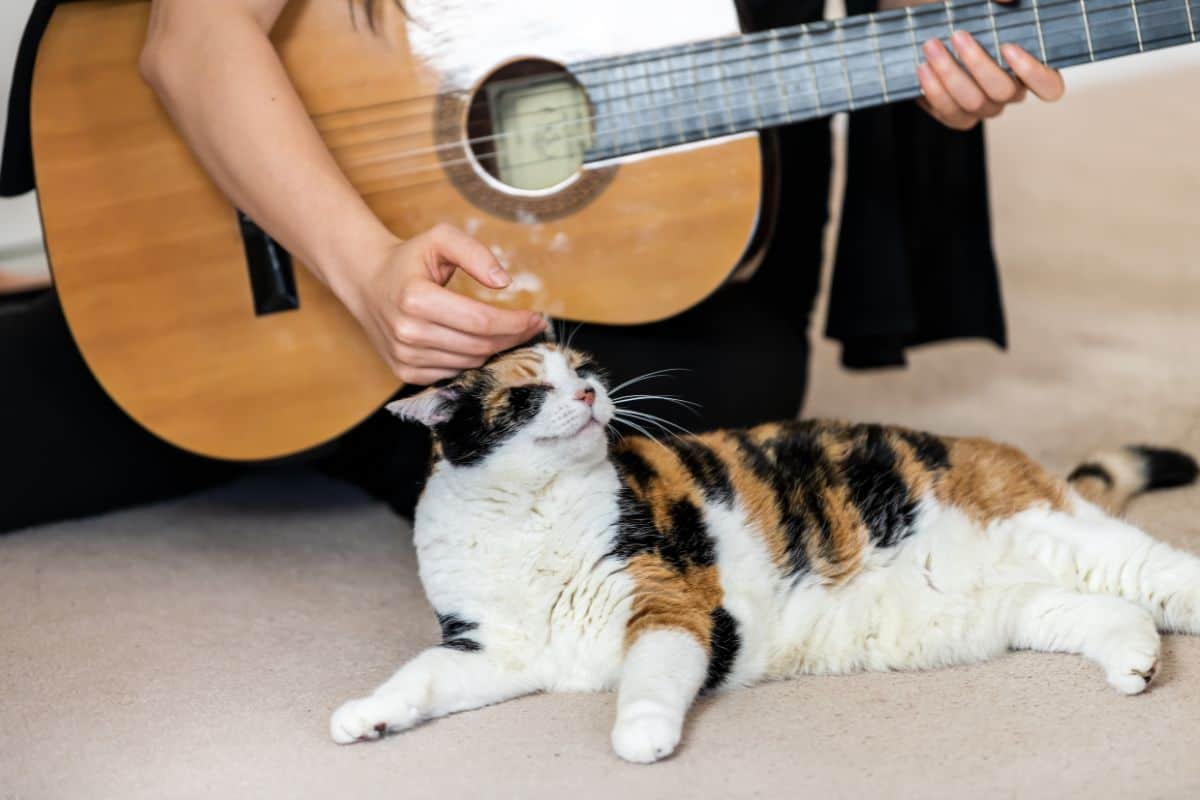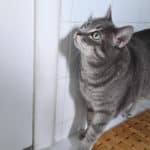If your cat is feeling stressed or anxious there are several strategies you can use to help them calm down. One of these is to play soothing music.
Does classical music calm cats?
Traditionally, high-stress areas like shelters and vet clinics have played classical music. Research has supported to idea that classical music is calming to cats.
A 2015 study that looked at the physiological response of cats under anesthesia for spay surgery. Three different genres of music: heavy metal, pop, and classical music were played and the respiratory rate and pupil dilation of the cats was measured. Cats listening to classical music had the lowest response rate. Pop music elicited the second lowest response rate while, unsurprisingly, heavy metal had the highest change in the cat’s breathing rate and pupil dilation. [1]
When you are trying to calm down an anxious or stressed cat, you want to lower their breathing rate. In this study, heavy metal created the exact opposite response while classical music produced a calmer response to the music.

Cat specific music
More recent research into how cats respond to music has lead to the development of customized cat music designed to lower stress levels.
Also known as feline-specific music, cats-specific music embeds sounds like purring and nursing sounds that are appealing to cats within classical music. These embedded sounds are designed to mimic the auditory and comforting experience of young kittens for cats hearing the music. The end result are soothing sounds within the pulse of the music designed to trigger a calmer response in cats.
Two studies, one from 2015 and another from 2019, were able to quantify a greater response by domestic cats to feline-specific music.
The study from 2015 presented cats with two examples of human music and two examples of cat music and found that “Cats showed a significant preference for and interest in species-appropriate music compared with human music. ” [2]
A second study, first published online in 2019, looked at the response of cats in shelters to silence or classical music compared to cat-specific music. Cat stress scores (CSS) were measured before and after the auditory tests. All cats had comparable CSS before they were exposed to the different auditory tests. After listening to silence or classical music, the stress factors of the shelter cats were similar. The stress scores for these shelter cats after listening to cat-specific music were statistically lower than the scores for cats exposed to silence of classical music.
Where to find cat-specific music
David Teie, a cellist with the National Symphony Orchestra, teamed up with animal behavioral scientists to develop “Music for Cats.” The composed music contains cat-specific vocalizations and underlying music at a much higher frequency than music produced for humans. Cats are more responsive to higher frequencies, a byproduct of the fact that their prey such as mice and rats emit high-pitched sounds.
Both the Music for Cats web site and the associated YouTube channel have soundtracks that can be played for cats. You and your cat can listen for free to select songs produced specifically for cats.
The songs are also available for purchase either as a digital download or CD from the web site.
So, the next time you are taking your cat to the vet and they howl all the way to and from the clinic, consider playing cat-specific music to soothe their nerves.
References
[1] Mira, F., Costa, A., Mendes, E., Azevedo, P., & Carreira, L. M. (2016). Influence of music and its genres on respiratory rate and pupil diameter variations in cats under general anaesthesia: contribution to promoting patient safety. Journal of feline medicine and surgery, 18(2), 150-159. https://doi.org/10.1177/1098612X1557577
[2] Snowdon, C. T., Teie, D., & Savage, M. (2015). Cats prefer species-appropriate music. Applied Animal Behaviour Science, 166, 106-111. https://doi.org/10.1016/j.applanim.2015.02.012
[3] Hampton, A., Ford, A., Cox III, R. E., Liu, C. C., & Koh, R. (2020). Effects of music on behavior and physiological stress response of domestic cats in a veterinary clinic. Journal of feline medicine and surgery, 22(2), 122-128. https://doi.org/10.1177/1098612X198281







